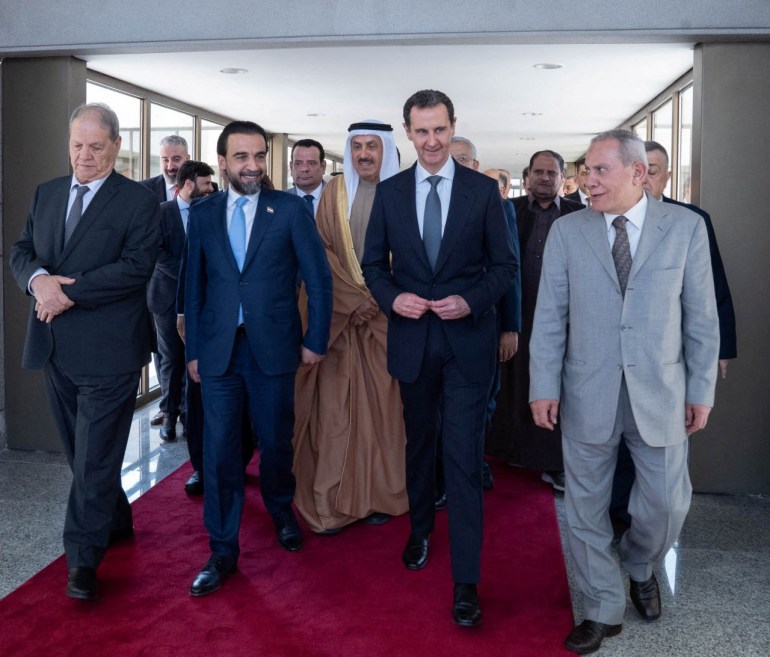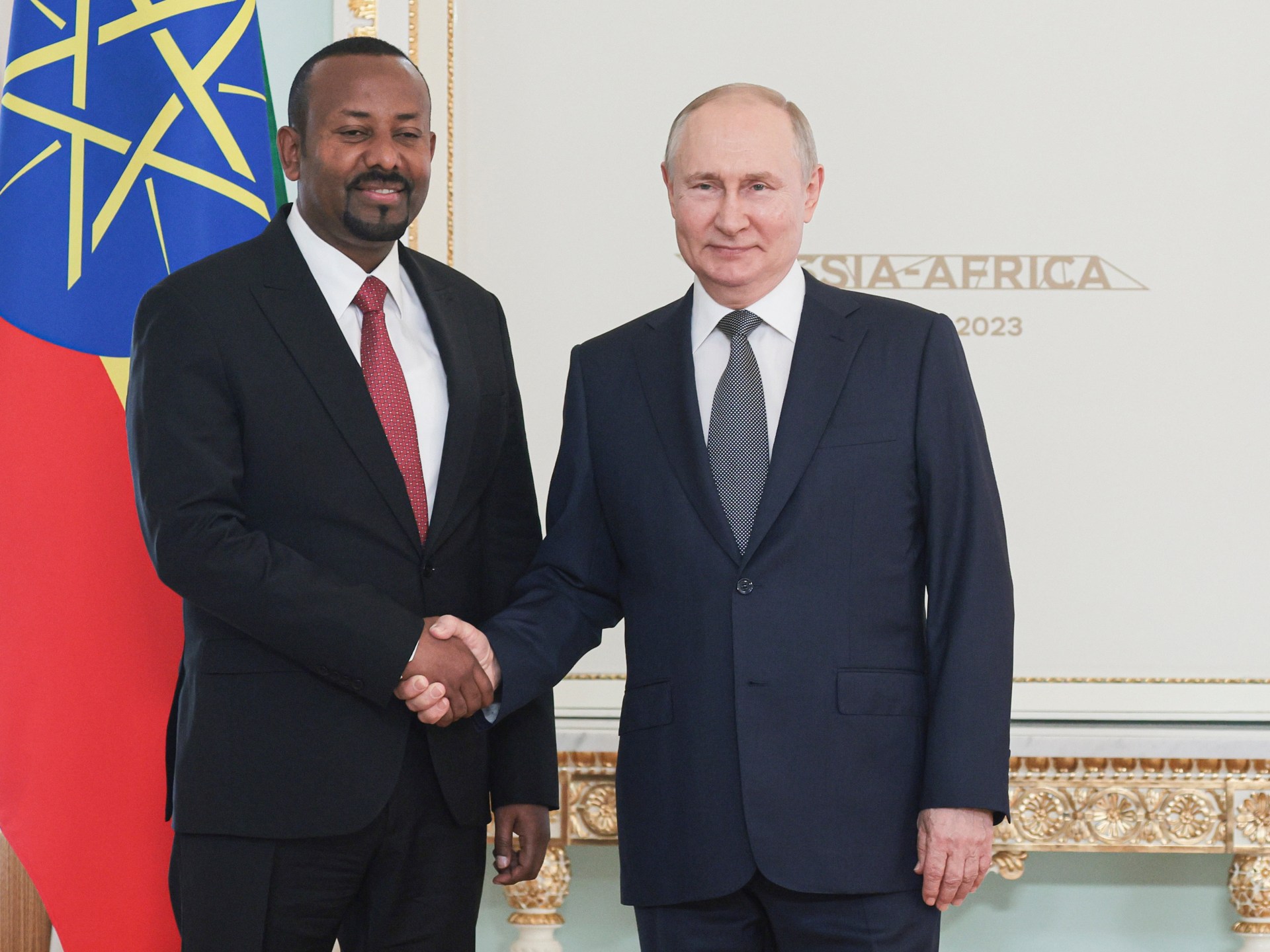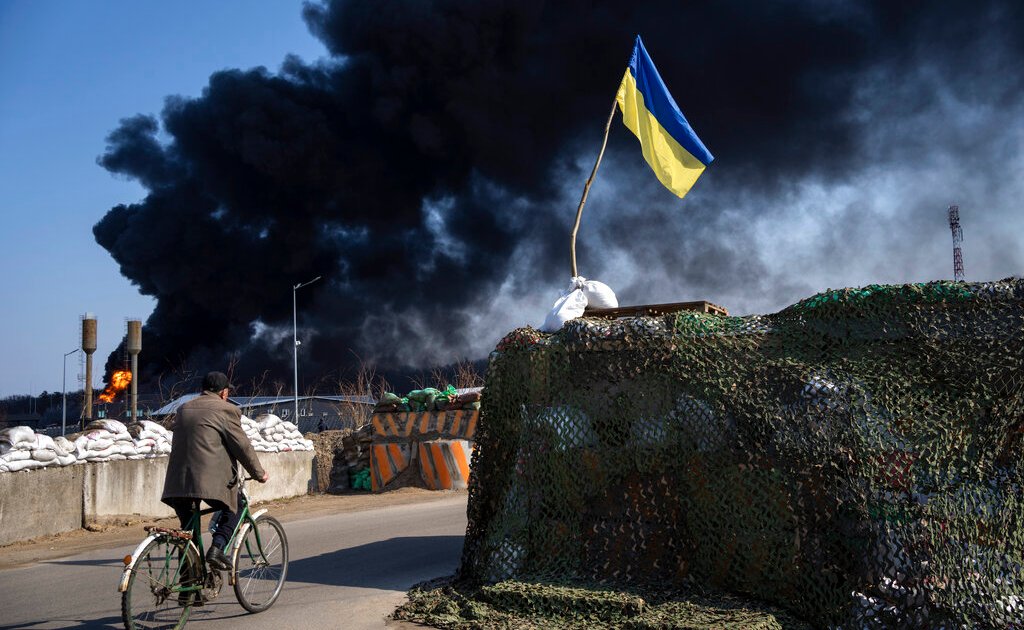Analysis: Efforts to end Assad isolation gather speed after quake
The February 6 earthquakes that killed more than 50,000 in Turkey and Syria require Arab states to address controversial questions about dealing with the government in Damascus and acute humanitarian needs in Syria’s opposition-held northwest.
Thus far, the disaster has not resulted in any Arab government changing its fundamental stance on President Bashar al-Assad, whose government has largely been isolated from the rest of the Arab world since 2011, when a largely unarmed uprising against his rule escalated into a full-fledged war.
Syria was suspended from the Arab League the same year, with many of its members withdrawing their envoys from Damascus. The United States and the European Union also disengaged with al-Assad, imposing sanctions on his government in response to the violent repression of civilians during the crackdown on the anti-government protests.
But after the quakes, Arab efforts – mostly driven by the United Arab Emirates – to accelerate Syria’s reintegration into the region’s diplomatic fold have gained momentum. The arrival this week in Damascus of an Arab Inter-Parliamentary Union delegation, including representatives from Egypt, Iraq, Jordan, Lebanon, Libya, Oman and the UAE, for meetings with al-Assad and Syrian parliamentarians highlighted this reality.
“There’s an opening for governments to establish relationships with the Assad regime because of the humanitarian aid that’s needed, thus forcing a political conversation about reestablishing relations and rehabilitating Assad,” Nader Hashemi, the director of the Center for Middle East Studies at the University of Denver’s Josef Korbel School of International Studies, told Al Jazeera.

A host of Arab states such as Algeria, Bahrain, Egypt, Oman, Tunisia and the UAE have their own geopolitical and economic interests in ending Syria’s regional isolation – from gaining greater influence in post-conflict Syria that can challenge the role of al-Assad’s backer Iran, to becoming actively being engaged in the reconstruction process for economic returns.
Experts have said many Arab governments – with Kuwait, Qatar and, at least for now, Saudi Arabia being the exceptions – see the earthquakes as reason to deepen engagement with al-Assad. These countries have argued that the US policy towards Syria has produced negative outcomes and the international community should set aside politics and remove sanctions to help Syrian earthquake victims who desperately need humanitarian assistance.
The disaster “brought into sharp relief the inability of regional leaders to influence events on the ground without working through Damascus,” Neil Quilliam, an associate fellow in the Middle East and North Africa program at Chatham House, told Al Jazeera.
“As such, relations might well move forward, but most regional leaders will view it simply as a necessity to aid the victims of the earthquake and to also stem the flow of captagon towards the Gulf,” said Quilliam, referring to the drug that was initially developed in Germany in the 1960s but today is made mostly in Syria.
Two weeks after the disaster, al-Assad visited Oman – the second Gulf Cooperation Council (GCC) state that he has travelled to since the Syrian war erupted 12 years ago.
Al-Assad’s welcome in Muscat indicated “interest at the highest levels of the GCC to rehabilitate” him, according to Hashemi, who argued that the Syrian president could not have gone to Oman without Saudi Crown Prince Mohammed bin Salman’s approval.
It was not too surprising that Oman was the first foreign country that al-Assad visited after the earthquake. The sultanate was the only state in the six-member GCC to maintain diplomatic relations with Damascus throughout the Syrian conflict and Muscat has supported Syria’s return to the Arab League.
Experts assessed that the most important aspect of al-Assad’s trip to Muscat, which built on his March 2022 visit to the UAE, was the message it sent to governments in the Middle East and beyond.
The trip was “mostly of symbolic value” as it demonstrated to “the Arab world and the rest of the world that the Arab League is getting ready to accept the return of Syria to the Arab League”, said Andreas Krieg, an associate professor at the Defence Studies Department of King’s College London.
“The optics of the visit – flying aboard Syrian Airlines aircraft, no longer travelling in secret – were intended to highlight the significance of Bashar al-Assad’s visit to Oman,” added Quilliam. “It was meant to persuade world leaders that his rehabilitation is well under way, and they should reconsider their opposition to him.”
At previous junctures in the Syrian conflict, Saudi Arabia and the UAE saw their support for rebel groups fighting for government change as a way to counter the influence of Iran, which in 2011 deployed forces to back al-Assad. Indeed, whereas his father, Hafez al-Assad, who ruled Syria for 30 years, balanced his relations with Gulf Arab monarchies and Iran, the successor spent the 2000s moving Damascus closer to Riyadh’s regional foe Tehran, while Syria’s relationship with Saudi Arabia underwent greater tension.
But now, with al-Assad having largely weathered the Syrian crisis, there seems to be a view among some GCC states that engaging the government in Damascus and bringing it back to the Arab fold is the most realistic path towards weakening Tehran’s hand in the Levant, analysts have said. However, any support to Damascus will come with strings attached.
Saudi Arabia and the UAE believe that al-Assad is “sufficiently vulnerable and weak that he can be lured away from Iran, but it’s an open question whether that proposition has any possibility”, Hashemi told Al Jazeera. “That’s the outstanding question about intra-Arab relations with the Assad regime and possible openings that might appear as a result of this disaster.”
Despite lacking Russia and Iran’s levels of influence over al-Assad, the UAE’s ability to persuade him to make a goodwill gesture to the international community by permitting cross-border aid into rebel-controlled northwestern Syria signals a degree of sway that the Emiratis have in Damascus. Following years of building on a rapprochement with al-Assad’s government, the UAE is attempting to play a highly activist role in post-conflict Syria, and the earthquakes seem to have facilitated further growth of Emirati clout in the war-torn country.
“For Abu Dhabi, Syria is a network-building asset,” according to Krieg. “It tries to use relations with Damascus as a bargaining chip to boost its own standing as a regional middle power.”
Ferial Saeed, a former senior US diplomat, told Al Jazeera that “there are a whole set of questions related to whether Assad can navigate relations with Iran and the Arab world well enough to satisfy both sides, and what pressures Tehran will put on Damascus.
“There are a lot of big moving pieces to this story, but this is a space to watch. Things could get very interesting this year.”
Still, the earthquakes will probably not result in Qatar and Kuwait reembracing al-Assad.
Krieg believes that Qatar will use its veto at the Arab League to prevent Syria’s return to the institution, but he is of the view that Saudi Arabia – which has supported Western efforts to isolate al-Assad’s government since early in the Syrian crisis – “is becoming more flexible”.
“For them [Saudis], it is about Iran and getting the Syrians back in the Arab fold. It could be a way of using the occasion to reverse their decision of how they engage,” Krieg said.
Indeed, Saudi foreign minister Faisal bin Farhan Al Saud last month insisted that when it comes to Syria “the status quo is not workable,” and that the world must “at some point” engage Damascus on issues like refugees and humanitarian aid. In practice, what this says about Riyadh’s approach to Assad remains to be seen.
“If the Saudis were to resume diplomatic relations, that would be significant,” said Saeed.




